Iranian Activist Tells UN Ukraine Invasion Is Dictatorship Vs Democracy
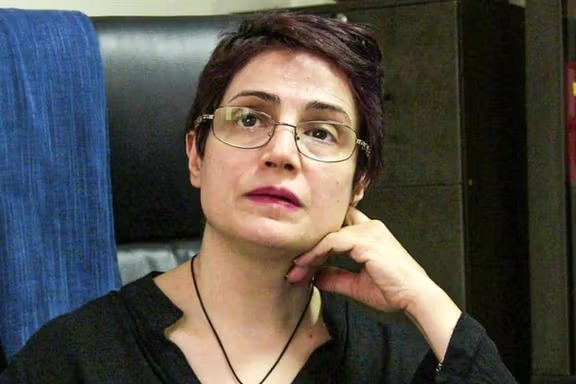
Renowned Iran human rights advocate and political prisoner Nasrin Sotoudeh describes the Russian invasion of Ukraine as war between democracy and dictatorship.

Renowned Iran human rights advocate and political prisoner Nasrin Sotoudeh describes the Russian invasion of Ukraine as war between democracy and dictatorship.
In a letter addressed to UN Secretary-General António Guterres, Sotoudeh praised the resistance by the people of Ukraine, calling on the international community to help the Ukrainian people "who do not want to be silently crushed under the boots of the aggressors".
She said, "This is a war between democracy and dictatorship, but fortunately the Ukrainian people are not alone in this battle, and the world has come to help Ukraine with great concern."
Sotoudeh has taken a risk by her action as she has received a long prison term and is free on temporary basis.
"As a woman who has lived in a country that has been directly involved in war for eight years, I can imagine the horror of the war and the naked violence against defenseless human beings”, Sotoudeh added.
Calling on the secretary-general to use "all international means to end this blatant aggression", she said that “like millions of people around the world, I am terrified of this brazen aggression… world peace is meaningless without standing up to Russian military aggression and supporting Ukraine”.
Sotoudeh is sentenced to 38 years in prison for two open cases in two political cases with vague charges of activities against the Islamic regime.
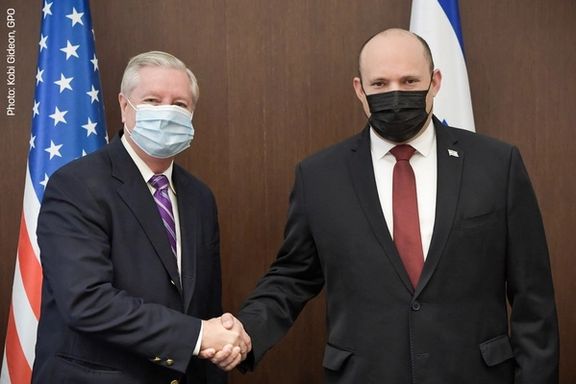
Iran’s mission to the United Nations has protested against a “hateful” speech by US Senator Lindsey Graham during his visit to Israel.
The Islamic Republic’s mission sent an official letter to the UN Security Council condemning the remarks by the Republican lawmaker Iranian scientists being killed, presumably by Israel, to stop Iran’s nuclear program.
“These disgusting, hateful and reprehensible remarks, which act as a green light to the Israeli regime to carry out more terrorist acts against Iranian nuclear scientists, are a clear violation of US international obligations”, the letter read.
During his visit to Israel in mid-February, Graham said, “A lot of Iranian scientists have had a lot of accidents, and we would expect more accidents to come. Having said that, if the Iranian regime sees nuclear weapons as an insurance policy for survivability, it will suffer a lot to get there”.
A supporter of former President Donald Trump’s decision to withdraw from the 2015 agreement, the JCPOA (Joint Comprehensive Plan of Action), Graham also compared Iranians to the Nazis, saying that “Iran is a theocracy motivated by religion [Shia Islam] that compels them to purify their faith and have the world submit. The Nazis wanted a master race, and the Iranians want a master religion. People like that cannot be ignored.”

Iran likely suffered another failed launch of a satellite-carrying rocket in recent days attempting to reinvigorate a program criticized by the West.
The attempted space launch came as Tehran faces last-minute negotiations with world powers to save its tattered nuclear deal in Vienna.
Satellite images from Maxar Technologies seen by The Associated Press show scorch marks at a launch pad at Imam Khomeini Spaceport in Iran's rural Semnan province on Sunday.
A rocket stand on the pad appears scorched and damaged, with vehicles surrounding it. An object, possibly part of the gantry, sits near it.
Successful launches typically don't damage rocket gantries because they are lowered prior to takeoff.
The United States says that space launches by Iran could be a cover to develope intercontinental ballistic missiles that would be able to deliver nuclear warheads.
Iran also usually immediately trumpets launches that reach space on its state-run television channels, and it has a history of not acknowledging failed attempts.
Iran's mission to the United Nations did not immediately respond to a request by the Associated Press for comment, nor did the US military.
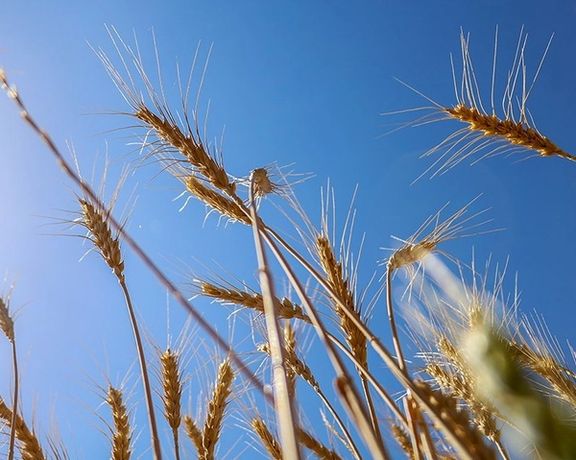
Iran is concerned that Russia's invasion of Ukraine might make it harder to import wheat and corn because the two counties are majow suppliers.
Ukraine and Russia account for more than a quarter of global wheat exports and nearly a fifth of corn.
Wheat prices surged five percent on Tuesday compared with only a day earlier on fears that the Ukraine crisis can disrupt the world’s staple grain markets, worrying countries like Iran -- which rely on imports from the region. Transport logistics problems can lead to shortages, food price inflation, or even hunger.
Bloomberg cited Russian sources that grain exports from the country will probably be on hold for at least the next couple of weeks while war in the Black Sea has also closed Ukrainian ports since Thursday.
Iran’s Feed and Grain Importers Union has recently announced that the Russian invasion can also cause problems in the imports of livestock feed and grain to Iran because companies cannot keep their deliveries due to logjams in supply chains while airlines cancelled cargo flights because of reciprocal airspace bans that hit both Russia and Europe.
A member of the union has called on the government to provide the means to import the staple grains from other countries such as Argentina, Canada and Brazil.
“There will be a big impact with respect to wheat prices and prices of bread for ordinary people,” World Trade Organization Director-General Ngozi Okonjo-Iweala said Friday.
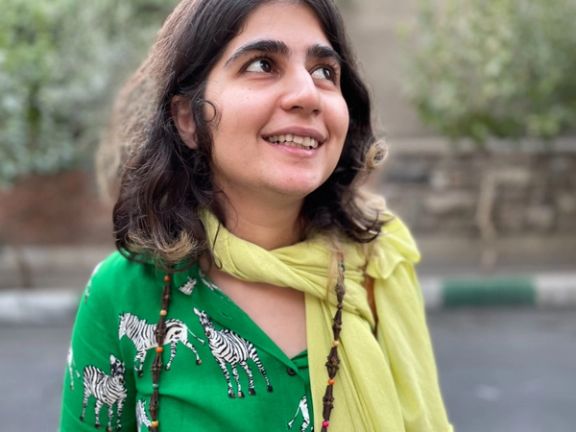
Iranian prison authorities have reportedly refused to allow activist Sepideh Gholian (Qolian) sick leave on grounds of severe Covid-19 symptoms.
Political activists have said Gholian has also been denied medical treatment despite severe gastrointestinal problems due to a hunger strike coupled with Covid complications. Gholian, who has spent much of the past five years in detention after involvement as a ‘citizen journalist’ in protests of Haft Tappeh sugar factory workers in Khuzestan province, has gone on hunger strike several times.
Activist and ex-prisoner Arash Sadeghi tweeted Tuesday that Gholian’s mistreatment was a prelude to another murder, referring to Baktash Abtin, who died of Covid complications January after reportedly denied timely treatment inTehran’s Evin prison. Another twitteratus wrote that the refusal to grant Gholian sick leave was a form of revenge.
While on medical leave in September, Gholian published tweets and did interviews with Prague-based Radio Farda of USAGM alleging around 20 cases of brutal treatment and abuse of female prisoners in Bushehr prison, which she called a “forgotten hell.” Her memoir, published by London-based ‘Iranwire’ in July 2020, was described by Farda as “19 vignettes that describe discrimination against Arab inmates, forced shavings, rape, and other abuses.”
In October, while still on furlough, Gholian was arrested at her home and placed in Evin prison. She had been sentenced in 2018 to five years jail for “disrupting public order” and “assembly and collusion against national security” after her role in labor unrest in Khuzestan.
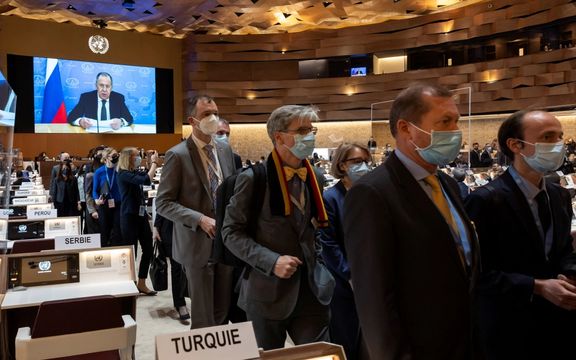
Separating non-proliferation from other issues has been a core assumption for 11 months of talks in Vienna aimed at reviving the 2015 Iranian nuclear deal.
That may be changing. The crisis in Ukraine threatens to impinge on negotiations between Tehran and six world powers – China, France, Germany, Russia, the United Kingdom, and the United States. Exactly how, diplomats are unsure.
Since the Biden administration took office in January 2021, Washington has eased closer to the western European trio (the ‘E3’), while taking part at Vienna only indirectly as the US maintains ‘maximum pressure’ sanctions introduced by President Donald Trump in 2018 on withdrawing from the 2015 deal, the JCPOA (Joint Comprehensive Plan of Action).
There is no obvious fall-out from the Ukraine crisis on the Vienna talks. Mikhail Ulyanov, Russia’s lead negotiator, has continued his generally optimistic videos and pictures on Twitter showing his meetings with the US and the E3.
But there is a general wariness. "There's a good chance that a crisis of this magnitude will pollute not only the Iranian file, but many others," a French presidential official told Reuters."This is one of the many subjects on which the relationship with Russia is very severely, very significantly changed by the behaviour of President Vladimir Putin."
Iran’s Supreme Leader Ali Khamenei Tuesday, in a televised speech, said Ukraine was “another victim” as the “US regime creates crises, lives off of crises and feeds on various crises in the world.” Khamenei emphasised that the “US and western powers could not be trusted.”
Trust, guarantees, interests
One of the biggest challenges in the Vienna talks, which those involved have generally said are nearing their end, is Iran’s search for guarantees, both that the US will not again renege on the JCPOA and that neither the US nor the European powers will restrict Iran’s access to world markets. The US ‘maximum pressure’ sanctions threaten punitive action against third parties buying Iran’s oil or dealing with its financial sector.
Three diplomats close to the talks told Reuters that developments in Ukraine had heightened a sense of urgency in Vienna, to the point that agreement on restoring the JCPOA needed to be reached this week before the atmosphere soured. A senior US State Department official said Friday that Washington still thought Moscow wanted to negotiate JCPOA revival, which the official called a “common interest” of the US and Russia.
But there has also been speculation that Iran might feel its position strengthened by a desire in Washington to avoid a second crisis and to see Iranian oil returning to world markets, given the Ukraine conflict has sent oil above $100 a barrel.
Sanctions
Another complication lies is that Russia, with a renewed JCPOA, would be expected, as in the past, to ship out stocks of Iranian enriched uranium. Tehran now has around 12 times the 208kg limitset by the JCPOA. While US and western European sanctions on Russia remain limited, and far less than sanctions on Iran or Afghanistan, they might increase if the crisis in Ukraine continues.
In the Financial Times Tuesday, Alistair Milne, professor of financial economics at Loughborough university, wrote that the experience of Iran showed that the “curious narrative” of barring Russia from the international Swift bank-messaging system would not lead to “cutting Russian money out of global finance” – and that broader measures, similar to those used against Iran since 2004, would be needed.